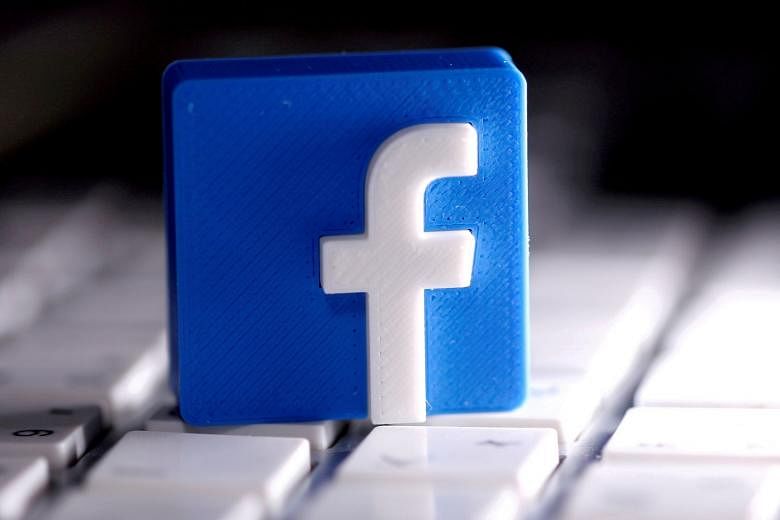SAN FRANCISCO (AFP, REUTERS) - Facebook is shutting down its facial recognition system and deleting a billion faceprints, its parent company said on Tuesday (Nov 2), in response to serious concerns over privacy.
The announcement from the leading social media network was made as it battles one of its worst crises ever, with reams of internal documents leaked to reporters, lawmakers and US regulators.
"There are many concerns about the place of facial recognition technology in society, and regulators are still in the process of providing a clear set of rules governing its use," parent company Meta said in a statement.
"Amid this ongoing uncertainty, we believe that limiting the use of facial recognition to a narrow set of use cases is appropriate," it added.
It was not clear when the changes would take effect, but they will be widely felt with Facebook noting that more than a third of its daily users have opted in to using the facial recognition system.
Shutting down that system "will result in the deletion of more than a billion people's individual facial recognition templates," the statement said.
An Australian regulator on Wednesday also ordered US facial recognition software company Clearview AI Inc to stop collecting images from websites and destroy data collected in the country after an investigation found it breached privacy laws.
Privately owned Clearview, which cross-references photos scraped from social media websites with a database of billions of images, collected Australians' sensitive information without consent and without checking its matches were accurate, the Office of the Australian Information Commissioner (OAIC) said.
The OAIC is investigating the Australian Federal Police (AFP) over a trial of Clearview software it ran between October 2019 and March 2020. The office added on Wednesday that it was still finalising that investigation.
The New York-based company's actions fell "well short of Australians' expectations" and carried "significant risk of harm to individuals, including vulnerable groups such as children and victims of crime, whose images can be searched on Clearview AI's database", Information Commissioner Angelene Falk said in a statement.
"The covert collection of this kind of sensitive information is unreasonably intrusive and unfair," she added.
A lawyer for Clearview in Australia said the company would seek a review of the decision with the Administrative Appeals Tribunal and that the finding showed the information commissioner misunderstood its business.
"Not only has the commissioner's decision missed the mark on Clearview AI's manner of operation, the commissioner lacks jurisdiction," Love said in an email.
"Clearview AI has not violated any law, nor has it interfered with the privacy of Australians. Clearview AI does not do business in Australia (and) does not have any Australian users." The AFP did not respond to a request for comment.
The OAIC finding shows a growing backlash by regulators against the controversial technology, which is being used or tested by law enforcement agencies around the world.
In June, a Canadian regulator found that country's police broke the law by using Clearview's technology until it was banned there.
As Facebook battles its latest crisis, it has also changed its parent company name to "Meta" in an effort to move past being a scandal-plagued social network to its virtual reality vision for the future.
Facebook, Instagram and WhatsApp - which are used by billions around the world - will keep their names under the rebranding that critics have called an effort to distract from the platform's dysfunction.

